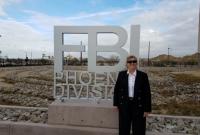Responding and Reporting
Featured Image
Image

Post date
06/07/2019 - 14:34
With thousands of active agents in the United States and around the world, the Federal Bureau of Investigation (FBI) is a viable recipient of international child abuse reports.
Post date
07/28/2013 - 07:17
If a religious organization believes that a minister or other employee has engaged in inappropriate sexual behavior, what responsibility does it have to notify others? How does child sexual abuse change the rules for normal termination procedure? Those who become victims of that person insist it is the organization’s duty to share that information. Employees who have been terminated for such behavior say sharing such information is a breach of confidence amounting to defamation.
